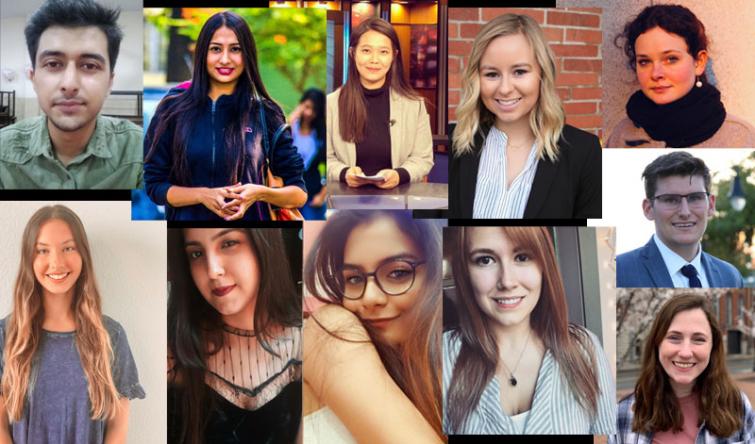
We are all in this together: How a pandemic transforms student lives in USA and India
Every spring, students from the University of Missouri in USA join with peers in India to work on story projects together, exploring subjects that link the world’s two largest democracies. They reach across oceans and time zones to share and learn and gain a new appreciation of all that unites people. IBNS with University of Missouri brings you the voices of today's youth in Covid-19 times
This year, the lesson of our shared humanity became visceral as Covid-19 gave the world a common foe and a common mission: to save ourselves and each other. Young people were forced to rethink the future -- theirs and the world’s. Here, students from India and America reflect on how the pandemic is shaping them -- and how they hope to shape the new world that will emerge in its wake.
.jpg) Khushi Malhotra, New Delhi, India
Khushi Malhotra, New Delhi, India
Growing up, I was a sickly kid with asthma and hyper-mobility of joints. So half my life was spent at home and I grew up filled with wanderlust, desperate to venture into the world.
The Covid-19 lockdown is a reprise of those days.
The virus borrows our time as it causes our lives to inch along. My sophomore year exams, internships and future aspirations are on hold.
Twenty-two days of lockdown made me mindful of my family’s struggles. Hearing their stories about unfulfilled aspirations has been a wake-up call for me not to waste this time. And watching the deaths rise each day is heartbreaking.
Still, there are silver linings to staying at home. I’m seeing a new world burst out of the Pandora’s box that the coronavirus has opened. The smog of my city is clearing; I’ve never seen a clearer sky and such low levels of noise, air and water pollution. Last time I managed to go up on the terrace, I spotted four constellations.
Every time I feel low, I stand on my balcony to hear the chirping of birds that before had been drowned out by noise.
.jpg) Kelly Kullman, Columbia, Mo., USA
Kelly Kullman, Columbia, Mo., USA
A visceral dread washed over me as I read the notice about the closure of the University of Missouri on March 13. I feared that also meant the imminent end of my job. With rent and bills coming despite the pandemic, I worried my world might crash down around me and I was powerless to stop it.
I work for a small business called Lee St. Deli, located near the university and serving mostly students. It’s been a staple of the East Campus community since 1927 and has never closed its doors. The current owners were determined that COVID-19 was not going to break this tradition.
They achieved their goal by adapting to social distancing guidelines, offering delivery and pick-up and expanding inventory to include more essential household goods.
Unexpected changes in staff left me as their only employee. Suddenly, I had more hours available than I could even work. I realize that my situation is an exception. I feel fortunate to have kept my job when about 26 million other Americans have not.

Going to work has helped to maintain some sense of normalcy. The routine creates a structure and a valid reason to leave the house. The socialization, from a safe distance, has fulfilled the need to communicate and interact with other people.
While sales are much lower than average, the deli is surviving as neighbors come to support it. It’s even had enough business to hire a second employee.
Customers have even taken the time to learn my name. I sense a genuine appreciation from the people I serve.
If anything from the pandemic lasts, I hope it’s that.
.jpg) Emmy Lucas, Lindenhurst, Ill., USA
Emmy Lucas, Lindenhurst, Ill., USA
Having found myself back home in northern Illinois after my sorority house at the University of Missouri closed for the semester, I find myself reflecting on my priorities and learning lessons:
You don’t need extra time. The pandemic has left most of us with extra spare time. Our days are packed with meetings, classes or whatever it may be, but how you choose to spend your breaks or evenings is always up to you whether during a pandemic or not. Every day is a good day to start the project you’ve always wanted to get to.
Embrace your family always. One week into social distancing, my parents dug up home videos from the basement. We now spend weekend evenings watching my two younger brothers and I dancing around in our pajamas, interacting with family members who aren’t with us anymore, taking on Disney World and more. Happiness comes from human interaction. Mend relationships and enjoy each other’s presence.
Taking time to decompress is key. Working from home often means we work more and carry our work into the evening hours. It is so crucial to take breaks. Acknowledge any and all feelings you have and know they are valid, but also take a walk and get some fresh air to breathe. I have found getting lost on backroads for an hour or two can be relaxing.
Take this time to reflect. Know your mixed emotions are okay. But take time for yourself, too.
.jpg) Madelyn Oden, Dallas, Tex., USA
Madelyn Oden, Dallas, Tex., USA
Before the pandemic hit, my friends and I had planned a spring break trip to Florida. We’d paid for Airbnbs and flights. But as school let out and I got ready to fly home to Dallas, I packed a week’s worth of clothing for home and a week’s worth of beach attire, not knowing the future.
The trip never happened.
When I got home, I realized that my parents had been out of work since the beginning of March. They’re in the event business, and their company relies on groups of people meeting for conventions and weddings.
All schools have been switched to online, so my sister and I began learning at home. I’m the oldest of three, and all of us are back in the same household. We haven’t all lived under the same roof since high school, so this has been a new and difficult experience trying to adjust to living with a lot of people.
I’m thankful that I still have another semester before I join the workforce and look for a job. Still, I’m disappointed that all of my friends are graduating this year, and the pandemic is keeping me from seeing them one more time.
.jpg) Nitin Waghela, Kolkata, India
Nitin Waghela, Kolkata, India
Covid-19: the most feared words to date.
Today, I see the world in lockdown, a juggle between lives and livelihoods in which governments are focused on protecting lives first. But it comes at a steep economic cost. Markets in the U.S. and India are down about 30 percent from their highs. The lack of job security makes me tremble. Adding to the loss of life faced by the world, there will be global recession.
But the pandemic gives us a new perspective as well, offering a reset button to a fast-paced world. It’s a time to learn how to coexist with other living beings, embrace nature and not fight for what’s mine or yours, but to live for what is ours.

Kate Robbins, Columbia, Mo., USA
It’s raining all the time, and all I do is cook. Today it was tikka masala. My junky little college kitchen smelled like toasted turmeric and chili powder. I deboned a chicken for the first time to make it while outside it poured, thunder cracking overhead. Good weather for a pandemic.
The virus has given me time to try dishes that take all day to make: chocolate pie, chicken and noodles, puff pastries. I don’t make anything healthy because I’m 22, which means I have the metabolism of a racing greyhound and no common sense, but also, for the first time in my life, I’m not really cooking to eat. The minute I get done with something I immediately think of how long it’ll take me to eat it, or if I can freeze it and move on to cooking something else.
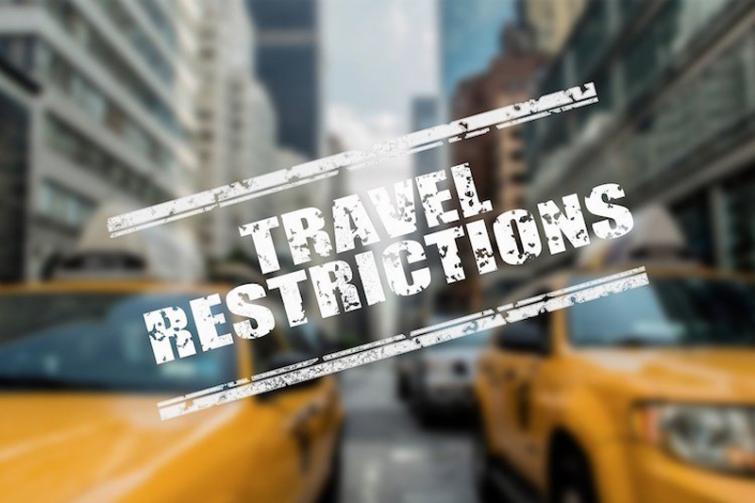
And although I’m getting to be quite the cook, it’s all just anxiety about the virus. All friends are acting the same way. One won’t let a dirty dish sit more than a second before she washes it. Another takes three walks a day. A third cycles through every craft she knows how to do.
So far, nobody I know is sick and all my disappointments about remote classes and cancelled trips are embarrassingly petty. I haven’t gone home yet, choosing instead to stay in my little Columbia apartment, being manically domestic and vainly holding onto the experience of college living.
Brennan John, Columbia, Mo., USA
For the last two years, my roommate has been a Chinese national named Chule Hou. We get along well. We’re both habitually clean, naturally quiet, and he was delighted when I brought home a pet cat one day. We don’t talk much given language barriers, but after a while, we reached the point of being roommates where we didn’t necessarily need to verbalize our communications.
I had my longest conversation with Chule in mid-February, when Covid-19 was just beginning to spread globally. Neither of us knew much about the virus yet, and Chule asked me why so few Americans wore the face masks he was accustomed to seeing on his Chinese peers. I doubt my answer was satisfactory. I told him that our government had claimed masks weren’t necessary yet, and may not be as helpful as the public believed. Now, of course, that recommendation has been rolled back.
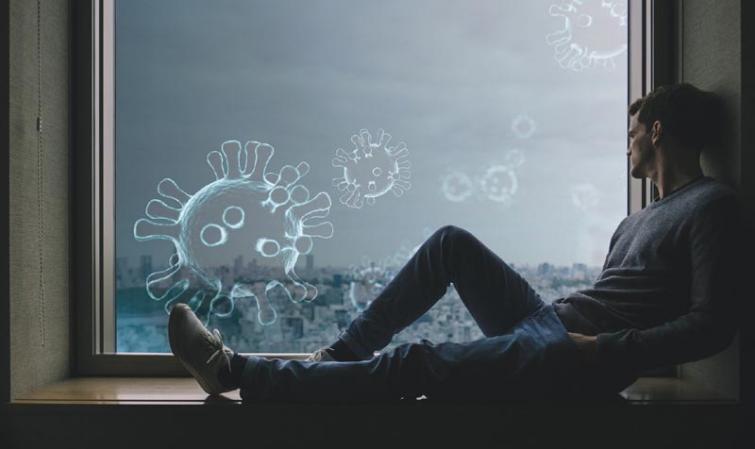
Then Chule told me something that made me reflect with sadness. He said that many of his fellow Chinese students were afraid to wear their masks because of possible American backlash, almost as afraid as they were of the virus itself. I did my best to assuage his fears. I told him most Americans were smarter and more respectful than that, and that if the disease spread further, more and more of us would be wearing masks.
I tried to downplay the entire thing, saying that the virus probably wouldn’t be as serious as global media made it out to be, and masks probably wouldn’t be necessary.
Time has proven me wrong, and now I regret my words to Chule. I fear that I brushed aside his concern with the usual American brusqueness. The man is a foreigner in a strange land that the Chinese Communists decry as barbaric, treasonous, and arrogant.
I wish now that I had offered to stay with Chule, to show him that Americans are not the irrational and unreasonable people that we are so often portrayed as.
.jpg) Deblina Biswas, Kolkata, India
Deblina Biswas, Kolkata, India
Throughout India, there’s a sense of uncertainty and a job crisis rippling all levels of society.
From daily wage workers to domestic help to professionals in the corporate world, no one knows what will happen. The lowest wage-earners risk falling into hunger. Students who received job offers have seen them rescinded as companies struggle just to keep existing employees.
And the situation is only becoming worse as the number of Covid-19 cases rises.
I have been working from home for the past few months as a digital media content creator, and am now planning to take up more full-time projects so that I can continue working from home for at least a year.
I wonder how much time it will take for things to get back to normal.
But I have to remember: As most of us are going through monetary losses, other families have lost someone to the virus. So maybe it’s time to prioritize health over everything else and try our best to sustain ourselves.
After all, we’re all in this together.
.jpg) Clare Roth, Columbia, Mo., USA
Clare Roth, Columbia, Mo., USA
I’ve been lucky in that I haven’t lost either of my jobs during the pandemic.
I write the minutes for the Missouri Business Alert newsletter and report on city government and life for the Columbia Daily Tribune, the city’s local newspaper. I’ve been reporting more than I’ve ever reported in my life.
Meanwhile, the breakdown of the newspaper industry has put a real edge on the sense of purpose I’ve acquired over the past month. I know my role as a newswriter is sacred. My editor at the Tribune loves news and reporting more than anyone I’ve ever met, and he is being forced to furlough for a week each month for the rest of the quarter.
The more seemingly full-time my job at the Tribune has become, the more I understand how much I enjoy journalism -- talking to people, figuring things out and really understanding how the pandemic is hitting some of the city’s least fortunate. I’ve gotten the chance to dig deeply into life in Columbia, riding my bike across the whole city and feeling a real sense of obligation to display the complicated ways the pandemic is reshaping lives here.
Although the virus will likely change the shape of the news industry forever, I don’t think the news will ever stop. At least I hope not.
.jpg) Kaitlyn Hoevelmann, St. Louis, Mo., USA
Kaitlyn Hoevelmann, St. Louis, Mo., USA
One of the first things I see when I wake up each morning in my childhood bedroom is a J.R.R. Tolkien quote I painted on a canvas when I was in high school: “All we have to decide is what to do with the time that is given us.”
My love for the Lord of the Rings saga is one of the few things that has remained a part of me since I painted that canvas. That’s why I left it up when I decided to redo my room after moving back home during the pandemic.
I decided to make this renovation my April quarantine project. I went through one section of my room each day with a trash bag and two cardboard boxes on hand, sorting items into categories. I have a plan for where my furniture will go and what I will hang on my walls in which places. My dad is going to help me paint my walls a soft yellow.
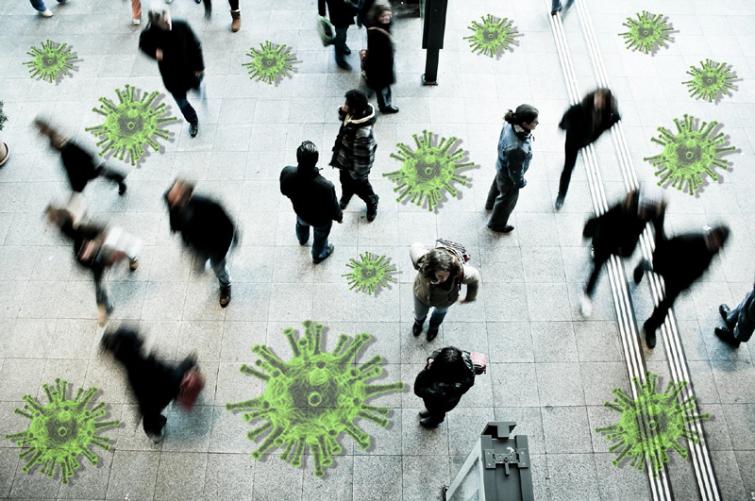
This project has helped keep me busy during these tumultuous weeks when life has changed so much. Deciding to focus my attention on one thing that I can control has allowed me to take my mind off what I am missing out on.
Reagan Loftus, Star Harbor, Texas, USA
I always thought at one point after college I would live with my parents, but never did I imagine my whole family living under the same roof again, especially during my final months as a senior at the University of Missouri.
So, here I am, with Dad, Mom, three brothers and my dog. To make it even more strange, my two oldest brothers have graduated from college and are working from home, one traveling from Boston to Dallas to avoid the pandemic.
Just a little over a month ago, I was attending class and enjoying myself on the MU campus, moving along with my peers and professors. Job opportunities seemed endless but have now slowly dwindled away.
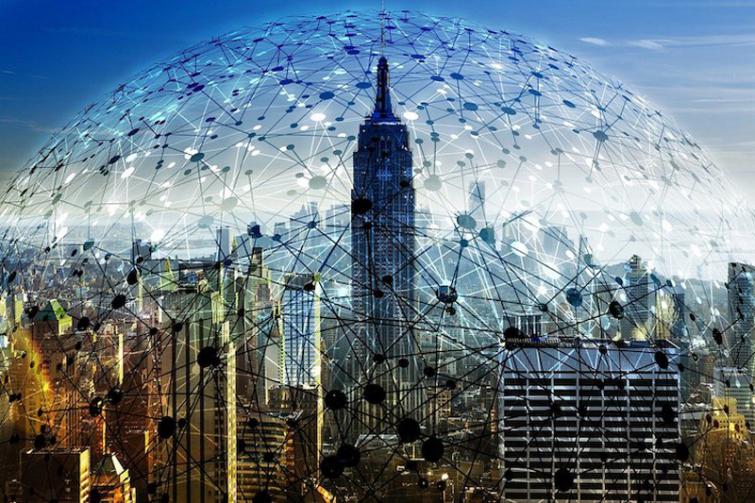
This pandemic has been a wake-up call. It is the first world crisis that I will be able to remember.
I have seen what a pandemic can do to markets and communities. I understand the uncertainty something like this can bring to the world. Unemployment is rising, startups are failing and many companies are losing money because people are unable to work.
But I continue to think positively. Our world is experiencing a pandemic crisis, but we have come together to enforce measures to slowly stop the spread of Covid-19.
My graduation plans have changed, and my life has changed, but I know this pandemic will not hold me back from succeeding. I have been so lucky in life and I will take this experience, learn from it and grow stronger. I hope the whole world does, too.
 Christina Mascarenas, Pueblo, Colorado, USA
Christina Mascarenas, Pueblo, Colorado, USA
On the evening of March 10, I was working on an assignment when a classmate called to tell me the data journalism students who were at a conference in New Orleans had been exposed to the coronavirus. As soon as I heard this, I started to panic, since I had talked to one of the students in the hallway of Lee Hills Hall a few hours prior. I told myself I caught the virus, and I started to feel warm, started crying with the thought that if I die, I have no one to take my cats. Maybe a bit dramatic.
The last few weeks have been an array of feelings. I miss walking through the buildings, sitting in classrooms, the journalism library, and ordering a ham and egg sandwich on a pretzel from Doug at the J Cafe. This isn’t how my last semester of graduate school was supposed to be.
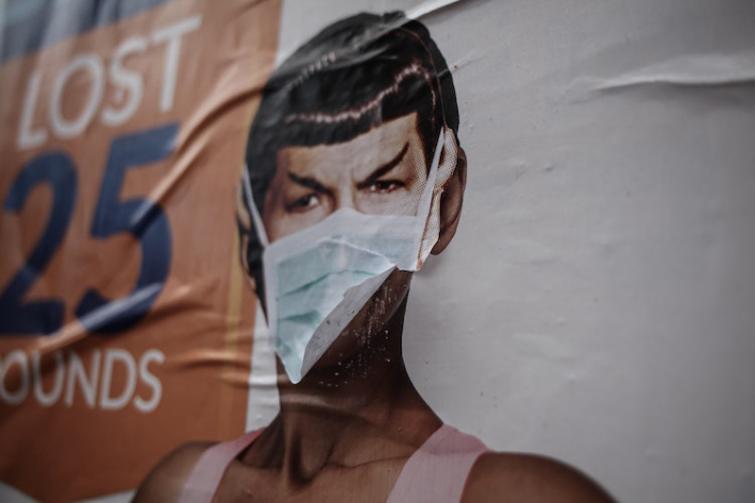
I am a non-traditional student, months away from crossing off a journalism degree on my bucket list. I kept waiting for the March email from the MU Bookstore with their spring discount to purchase my cap and gown and my diploma frame. Instead, I got email after email regarding the coronavirus with an updated tally of those infected.
Still, I know I am lucky. Mizzou let us keep our stipends, allowing my little family to be financially safe until the end of the semester. We have a roof over our heads, food in the fridge, a big bag of cat food, and too much hand soap.
For now, I am hunkered down in the safety of our quarantined life, knowing I will never again take for granted the simple act of hugging a friend.
.jpg) Bailey Yang, Columbia, Mo., USA
Bailey Yang, Columbia, Mo., USA
March 15 was the last day that I worked at KOMU 8. During a post-show meeting, we were told the university had to shut down indefinitely and the number of people working at the television station had to be limited to keep us safe. Those of us accustomed to carrying cameras, tripods, batteries, and lights started interviewing people on Zoom instead.
The first story I did following the stay-at-home order was about a group of people called “heart hunters,” which began with a Facebook photo showing children holding colorful paper hearts behind a window. I clicked on the photo and was led to similar ones. They came from a group of 80,000 Facebook users across the nation who want to show support to health workers during the pandemic.
As I finished my work for KOMU 8, I worried how the pandemic would shape my future. Unlike most graduating seniors, international students like me must have a job offer within a few months after graduation to stay in the country. But with hiring freezes spawned by the virus, it’s nearly impossible to find a full-time job, let alone one that offers a sponsorship visa to international students. That means many may have to return to their countries soon after they graduate.
Still, I don’t believe this is a time to surrender to circumstances. Despite everything, we need to respond to life’s possibilities.
Chuck Bayoud, Dallas, Tex., USA
When I first heard about the spread of Covid-19 in China, I thought it was only a matter of time before the virus got to other parts of the world given the globalization of the world economy.
But I did not understand the effects it would have on the world as we know it. Not once did I think the spread of this virus would lead to losing my job at Wilson’s Fitness in Columbia. Not once did I think it would lead to me finishing my junior year at the University of Missouri online from home in Dallas. Not once did I think it would lead to the biggest economic recession since 2008.
Now, instead of searching for internships related to my field of study and looking for a place to live in Columbia over the summer, I applied for a position as a delivery driver for Amazon to find a source of income.

What really upsets me about this whole situation is how some people don’t follow the stay-at- home guidelines. As someone with parents who have underlying health issues, it blows my mind how people refuse to quarantine and follow government regulations during this pandemic.
Driving to my dad’s house for Easter dinner, I saw scores of people walking around their neighborhoods, hanging out in their front yards, exercising and not wearing masks or gloves. These same people are the ones complaining about how long the quarantine is going to last.
What is there not to understand? The more we all sacrifice and stay home, the sooner this will end.
.jpg) Maxwell Hogan, Boston, Mass., USA
Maxwell Hogan, Boston, Mass., USA
“We are living through history,” my mother said as I arrived home in Boston after a 20-hour car ride.
Times have grown strange. Cities are closed down, people are forced to seek shelter in their houses and restaurants are drive-through only. In March it seemed like a twisted joke that teachers were starting to prepare for the University of Missouri to go from Miz-zou to Miz-zoom.
But after a month spent in quarantine, I do believe we are truly in the midst of history that younger generations will read about one day. It’s historic that more than 20 million people were unemployed as the pandemic turned a prospering economy into a recession in the matter of weeks. That means college graduates, including myself, are entering the workforce at a time when potential employers are telling us that hiring is frozen.
In times like these, I find it’s best to have strength -- strength that we can endure hardship, be prepared for the future and roll with the punches.
.jpg)
Natasha Sethia, Kolkata, India
When India announced a nationwide lockdown, people started to work from home. All the schools and colleges closed, as did the cinema halls, malls, restaurants, bars and all other public places.
During the first week of the lockdown, I couldn’t really find a way to pass my time. The instant I would switch on the television, my ears would be flooded with news about coronavirus – the death rates, the speedy rate of increase in the number of cases, the people who were being detected positive in my neighborhood.
But gradually, I made peace with the lockdown. I started helping my mother with household chores, learning the basics of accounting from my father, trying new workout regimes, sketching pictures and meditating twice a day as a ritual.
I’ve realized the lockdown offers us the gift of time, a unique opportunity to create memories with our loved ones, be introspective and learn new things.
Sadly, nothing will ever return to the way it used to be. In every nation, this experience will change us. But I’m hopeful that together, we will walk towards a new beginning.
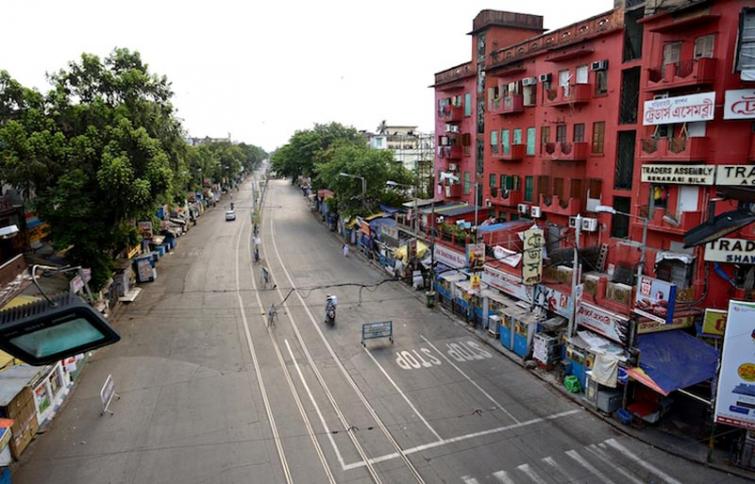
Images: Pixabay, Unsplash (Julian Wan, Nick Bolton), IBNS (Avishek Mitra)
Support Our Journalism
We cannot do without you.. your contribution supports unbiased journalism
IBNS is not driven by any ism- not wokeism, not racism, not skewed secularism, not hyper right-wing or left liberal ideals, nor by any hardline religious beliefs or hyper nationalism. We want to serve you good old objective news, as they are. We do not judge or preach. We let people decide for themselves. We only try to present factual and well-sourced news.







